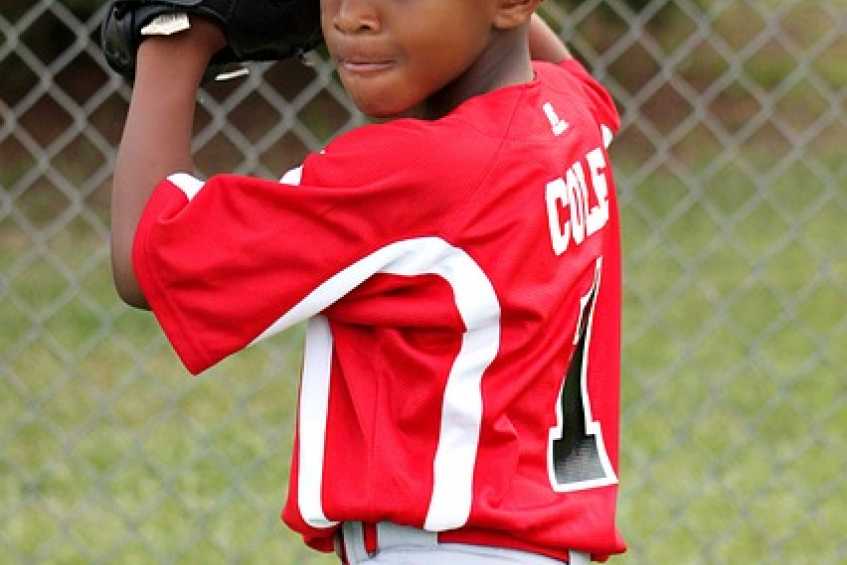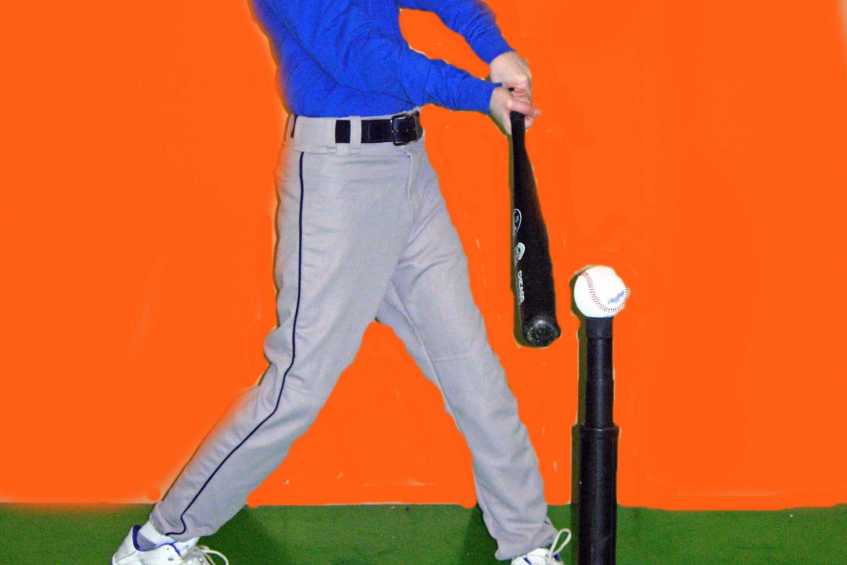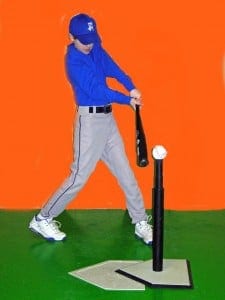

Following are the most common youth baseball training questions I receive. Like many things, no one solution fits all and a trial and error basis is needed.
My son never seems to want to practice, which is very frustrating for parents?
Agreed, that is very frustrating, especially when playing a lot of money to play for expensive travel teams. Do not give up hope, as many kids eventually understand that practice leads to success, which is more fun than the alternative of failure.
The keys:
1. Remind them in a matter of fact voice that they can avoid many frustrating performances when they have success, which comes with a greater commitment to baseball practice.
2. Search for coaches for the following season that make the game exciting for the players. Attend a practice or two of the coach and observe things then, as well as a game or two to see the atmosphere. A good coach gives players things to practice that are not boring, do it yourself things.
3. Do not give the player ultimatums practice or else, but give them time to develop a work ethic.
4. Parents should know that practicing by oneself is boring, so they should offer to practice with their child without overloading them with instruction.
Is it good to coach one's own child?
This has to be decided on a case-by-case basis. For parents who can treat their own as just another player (I know, that is hard) and you have sufficient knowledge of the sport to help that aged player, then it is a good thing.If parents notice their child gets mad at them at home when they ask them to do things, it probably won't change at the field and another coach is best.
My daughter has no confidence, so she is not aggressive at all?
Continue to teach the fundamentals as well as the why for them. Often, an increase in knowledge of how to perform skills leads to greater confidence. A few lessons with a private baseballmay help build her knowledge, skill level and confidence, which usually leads to a more aggressive player.
My son's coach is terrible, should he quit the team?
Quitting should be a very last resort, only done if the player is so miserable they will not go to practice or games. Players need a great deal of parental support for this situation and it is usually best to help them make the most of a bad situation. Talking to the coach for your child is an option, but that may not lead to a positive outcome.Inform the player to hang in there and you will find them another team the following season.
My daughter never plays her favorite position, should we confront the coach on this?
This is another of those situations thatmakessports frustrating. Generally, it is best to not make a big issue of it with the coach but continue to have your daughter practice the position away from the team in the hopes of keeping up her skill level high. In this manner, she keeps up hope that she may play the position in the future under a different coach and team.Learning other baseball positions usually pays off down the line so try to get her to embrace her new position.
My Son hits the ball well in batting practice, but never in games. Why is that?
Unfortunately, game hitting and batting practice are two different things. Often, batting practice pitchers just "lay" the pitches in there at less than game speeds. This allows hitters with hitting fundamental flaws to hit the ball well in batting practice. However, swing flaws show up at game speed and in games, especially when pitchers begin to throw off-speed pitches. Of course, the fix is in the development of better swing fundamentals, as well as challenging them appropriately in batting practice. With quality batting practice, hitters learn to adjust and it should show up in games soon.
My daughter makes contact but never drives it, any solutions?
Of course, this is the same as saying the more common, "She has no power." When hitters have a good fundamental swing but never seem to drive the ball, there are a couple of main reasons. Power comes from bat speed, which is the result of using the lower body and upper body to maximize bat speed. Generally, when hitters make consistent contact but display little power, they fail to stay back and use their big lower half muscles. Additionally, the correct palm-up, palm-down hand positioning at contact is vital to drive balls. Hitting balls to the opposite field in batting practice can help that positioning.
Another thing is to make sure the hitter is finishing their swing on their follow through all the way to the middle of their back with two hands on the bat. Hitters, who do not stay back or use their hips and rear end correctly, will not finish their swing and thus a lack of power. Many youth players lack the physical strength to have the bat speed to drive the ball. Performing age-appropriate strength training exercises can help hitters add bat speed and power.
My son pops up all the time. What can we do to help that?
This is one of the most common problems with hitters and a tough one to overcome, Of course, the good news is that the hitter is making contact, which is elusive for many hitters.Popped up ballscome with hitting the bottom portion of the ball, which is a good sign. They only need to adjust about a quarter inch on the ball to turn pop ups into line drives. Helping hitters create a slightly more compact swing can solve the pop-up syndrome. That can be done by setting a batting tee at or a little above the players letters and practicing until they learn to get the bat just a little higher up on the ball.
He never gets the ball in the air when batting. How can he lift the ball?
This is a trickier answer than the previous answer because most people think that ground balls come by hitting down on the ball but in reality, very few hitters ever chop at the ball. Casting the bat out prevents them from hitting the necessary lower inside half of the ball. The fix for this problem is with the batting tee set way down at the player knees, or slightly below. Hitters should practice hitting this pitch until they can consistently hit the ball on the line and through the middle of the diamond (centerfield).
My son's arm hurts even after just a few throws. What can I do to help him?
The overhand throwing motion is not a natural body movement so the correct throwing mechanics are essential to prevent soreness and arm injury. At a young age, parents should have ball players throwing mechanics analyzed by a knowledgeable throwing coach. Rarely, should kids get a sore arm if their throwing mechanics are sound, unless over used as pitchers. The other reason for sore arms is simply a lack of strength around the elbow and shoulder muscles. An age appropriate strengthening program will usually eliminate the soreness.
My son can't throw strikes, how can I help him?
People realize that hitting is timing the ball but fail to realize that pitching requires a great amount of timing, too. When pitchers have good throwing mechanics and still cannot throw consistent strikes, they should slow down their motion until they reach their balance position at knee lift, and practice focusing on the target instead of the hitter. Most youth hitters rush when the game adrenaline begins to flow and lose focus.
My son is scared of the ball on defense? How can I get them to overcome their fear?
I am a big proponent of teaching fielding with a much softer ball when kids are young (ages 7 -12). This type ball allows kids time to learn to catch the ball in the correct manner without the pain associated with being struck by a hard ball.
#youthbaseballtraining #youthbaseball
Jack Perconte has dedicated his post-major league baseball career to helping youth. He has taught baseball and softball for the past 27 years.His playing, coaching, and parenting storieshelp create betterexperiences forathletes andparents.Jack has writtenover a thousand articles on coaching baseball and youth sports.Jack is the author of "The Making of a Hitter" and "Raising an Athlete." His third book "Creating a Season to Remember" is in the works. Jack is a featured writer for Baseball the Magazine. You can also findJack Perconte at YouTube withover 80 fun and innovative baseball instructional videos.
After playing major league baseball, Jack Perconte has taught baseball and softball since 1988 and offered valuable coaching training too. He has helped numerous youth players reach their potential, as well as having helped parents and coaches navigate their way through the challenging world of youth sports. Jack is one of the leading authorities in the areas of youth baseball training and coaching training advice.
All Jack Perconte articles are used with copyright permission.There are 0 comments on "Youth Baseball Training Questions"
chandler allen says:
"Hi my name is chandler, i’ve enjoyed..."
On Wanting to tryout for summer ball. as an 18 year old
david graham says:
"With no current MLB team in Canada,..."
On With no current MLB team in
Charles Chavez says:
"To All Coaches: Do you have13U or..."
On Looking for Games